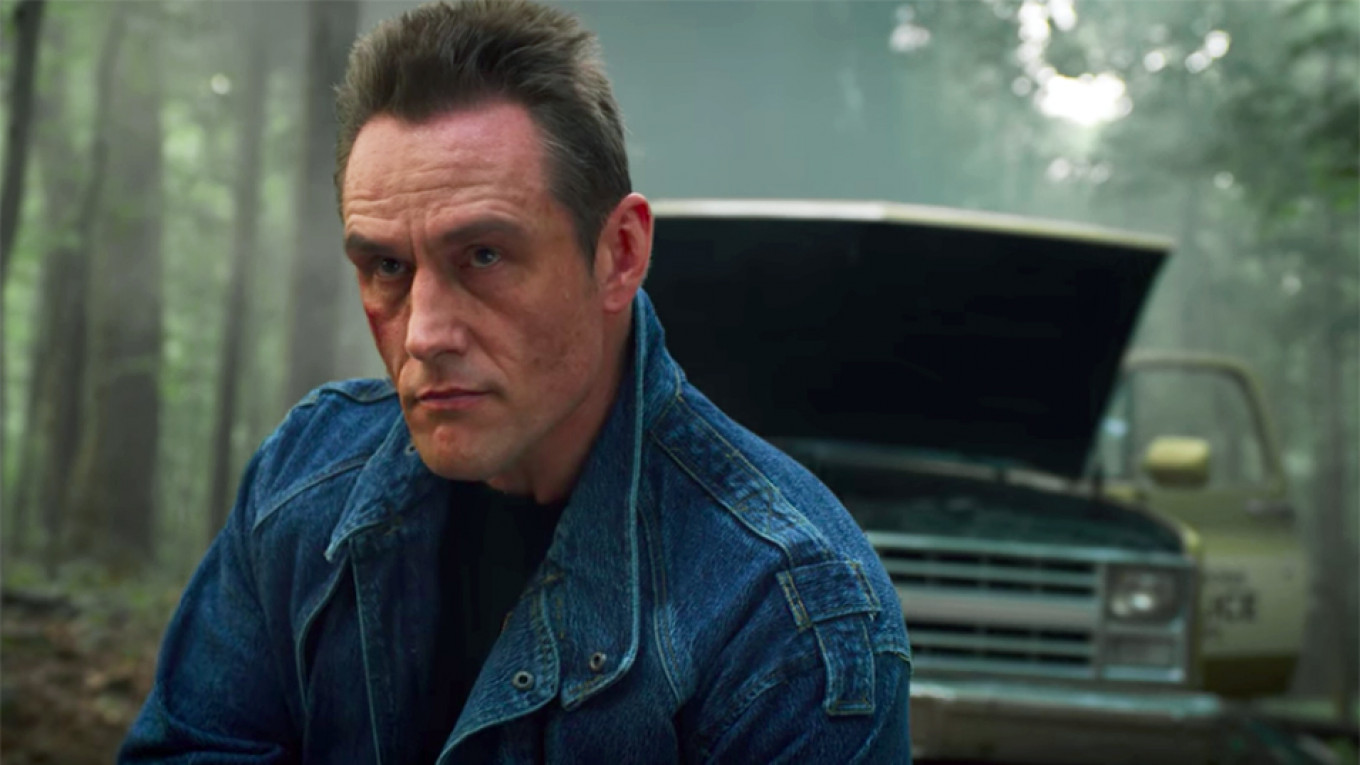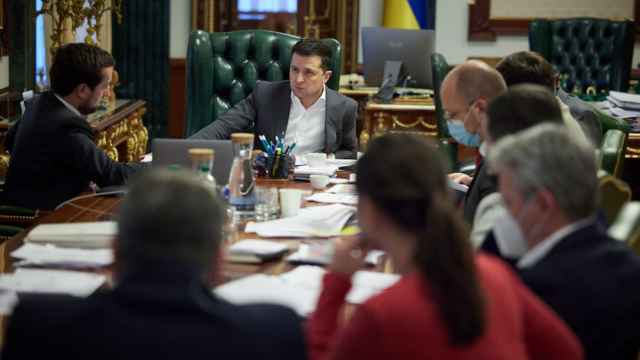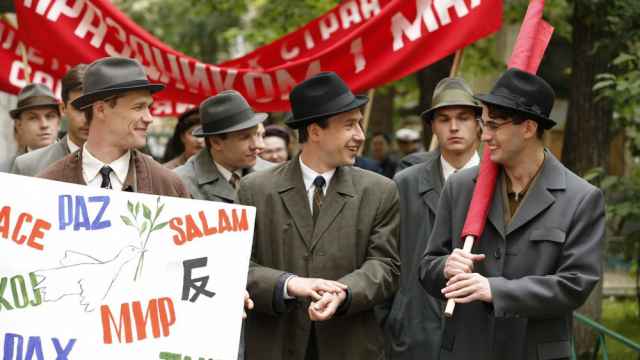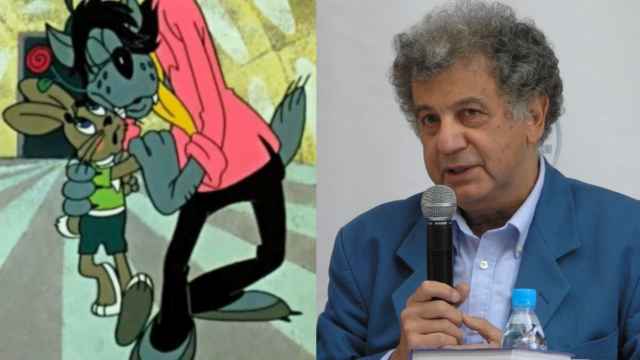After two seasons, fans of the hit Netflix series “Stranger Things” were used to things being pretty strange — whether it’s the threat of creatures from an alternate dimension or a young girl with psychokinetic powers.
But few expected that in the third season, released on July 4, a vast Russian conspiracy would descend upon the town of Hawkins, Indiana.
Early on in the new season, viewers learn about a secret Russian laboratory built beneath Hawkins’ new shopping mall where scientists are working to open the gateway to the Upside Down and unleash its horrors into the real world.
Before long, two of the show’s main characters, Steve and Dustin, are interpreting Russian radio transmissions with the help of Robin, Steve’s fellow ice-cream scooper with a rare knack for languages. The code they decipher sends them on a mission to figure out what the “evil Russians” are really up to.
Andrey Ivchenko, a Soviet-born actor who now lives in the U.S., signed on to the “Stranger Things” cast to play Grigori, the Russian hitman with a cold, machine-like demeanor and terrifying combat prowess. When he’s not securing shady land deals for the Russian operation with Hawkins’ mayor, Grigori is a deadly assassin who will stop at nothing to keep the show’s protagonists from learning the truth about the Russians’ activities.
The Moscow Times spoke with Ivchenko about Grigori, paying tribute to The Terminator and playing an “evil Russian” for a largely American audience.
(Answers have been edited for clarity and length.)
For our readers who don’t watch the show — just how strange do things get this season?
With all honesty, things get very strange very quickly. Don’t want to give out any spoilers for people who haven’t watched it yet.
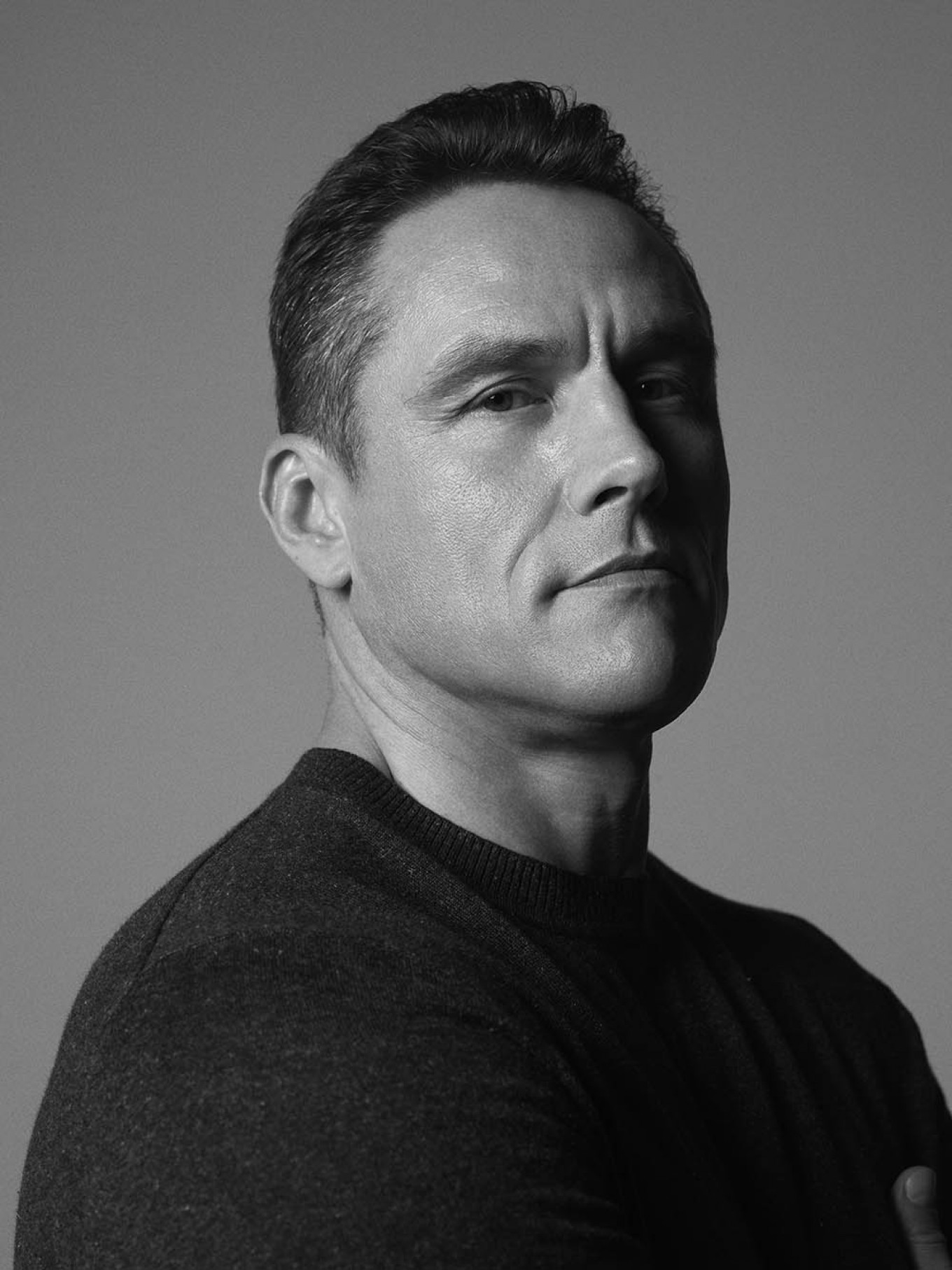
This season plays on Americans’ Cold War fear of Russians during the 1980s. Like a lot of trends from that time period, the Cold War has made a comeback in pop culture, in shows like “The Americans.” What was it like to portray a Russian for a largely American audience?
It felt great! Yes, that period has resurfaced back in television and film projects. The Duffer [Brothers, the showrunners] incorporated a lot of [references to] movies from the 80s — and at that time, the Cold War theme was very popular in Hollywood. My character’s prototype was Arnold Schwarzenegger’s Terminator, but the Duffer Brothers trusted me to make it my own. It was a lot of work, but also a lot of fun to portray Grigori.
Did you study those movies before filming to get Schwarzenegger’s mannerisms as The Terminator down?
I didn’t have to study anything about Schwarzenegger’s Terminator, because I’ve watched that movie so many times that I know the Terminator character like the back of my hand. I didn’t even think about it while I was filming, it just came naturally.
You’re originally from Soviet Ukraine and now live in the U.S. Did you grow up speaking Russian — and if not, was it a challenge to get the authentic Russian accent down?
As all the people who were born and raised in the Soviet Union, I grew up speaking Russian and I have my natural accent in the show.
Had you watched the show before auditioning for the role? What drew you to the project?
I’ve been a fan of the show from the first season and I’m always excited when a new season comes out. What’s not to draw you to this project? From the story, to the time period, to the cast I was working with, to the creators.... everything about being a part of this project was a dream come true.
Do you have any favorite stories from filming?
While David [Harbour, who plays Sheriff Hopper] and I were shooting the fight scene in the basement, Winona [Ryder] meant to throw the gun to David, but instead when she threw it, David didn’t catch it and it slid under my leg, which wasn’t planned. But it looked so cool on camera that they ended up keeping that take and using it for the final cut.
Did you do your own stunts? How hard was it to film your fight scenes?
The majority of the fight scenes I did myself, but there are parts of the fight that required me to have a stunt double. To film those scenes, it was very physically challenging, with long hours and many takes. After those scenes my body was black and blue, but in the final cut those fights look phenomenal.
What has the fan response and attention been like? Do people recognize you on the street?
The fan response and attention on social media are overwhelming, but very positive and encouraging. People recognize me on the street and ask to take the pictures or autograph posters. I just came back from San Diego Comic-Con and it was a bit of madness, but exciting. It’s very nice to see how supportive the fans have been.
How do you feel about how things ended for Grigori? Did you know about his fate before you began filming, or did it come as a surprise?
Personally, I’d love for Grigori to be alive and continue to entertain the audience in season 4, but it’s not up to me. Typically, the bad guy doesn’t get to live, so his fate didn’t come as a surprise to me. However, I didn’t know about his final destiny until about halfway through filming.
Given the tense situation between the U.S. and Russia, do you find yourself feeling like an ambassador for Russia or Ukraine?
Honestly, I don’t feel like an ambassador of either country. I left Ukraine a long time ago and the U.S. is my country now. But despite what the situation is nowadays in the political arena, people will always find common ground.
A Message from The Moscow Times:
Dear readers,
We are facing unprecedented challenges. Russia's Prosecutor General's Office has designated The Moscow Times as an "undesirable" organization, criminalizing our work and putting our staff at risk of prosecution. This follows our earlier unjust labeling as a "foreign agent."
These actions are direct attempts to silence independent journalism in Russia. The authorities claim our work "discredits the decisions of the Russian leadership." We see things differently: we strive to provide accurate, unbiased reporting on Russia.
We, the journalists of The Moscow Times, refuse to be silenced. But to continue our work, we need your help.
Your support, no matter how small, makes a world of difference. If you can, please support us monthly starting from just $2. It's quick to set up, and every contribution makes a significant impact.
By supporting The Moscow Times, you're defending open, independent journalism in the face of repression. Thank you for standing with us.
Remind me later.



